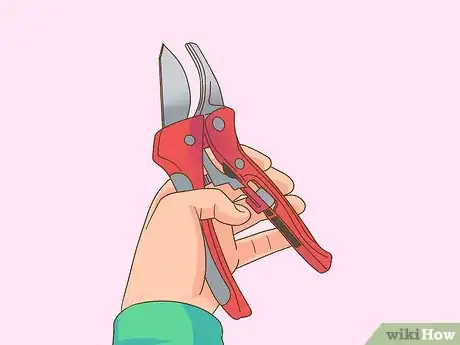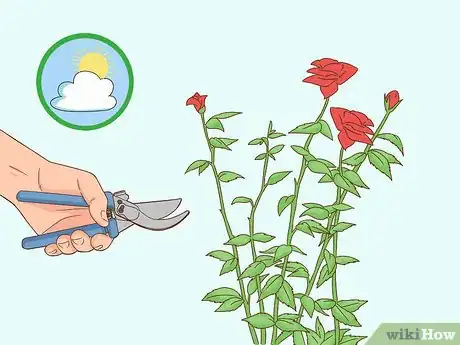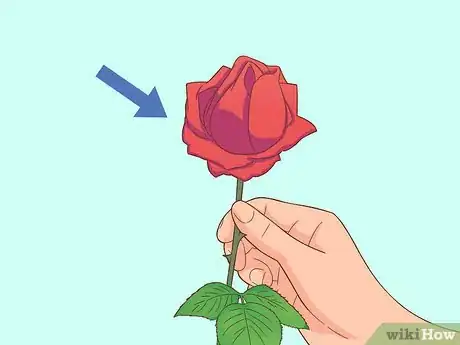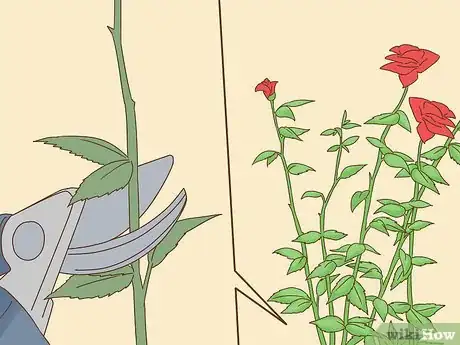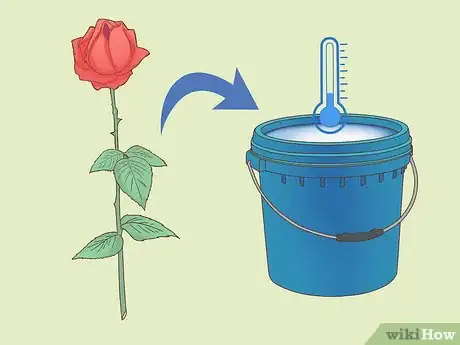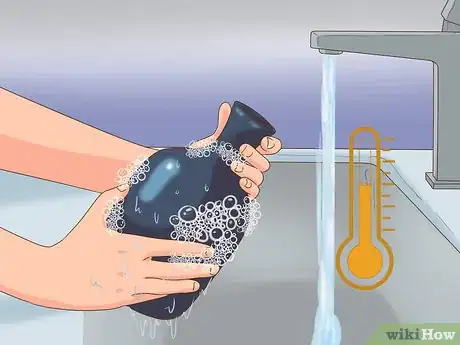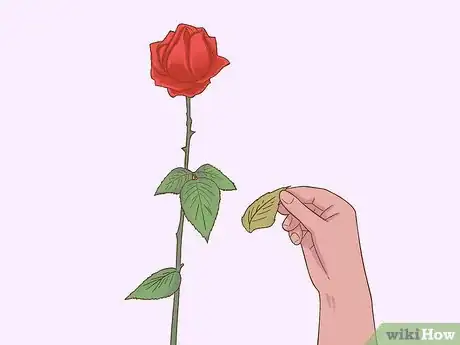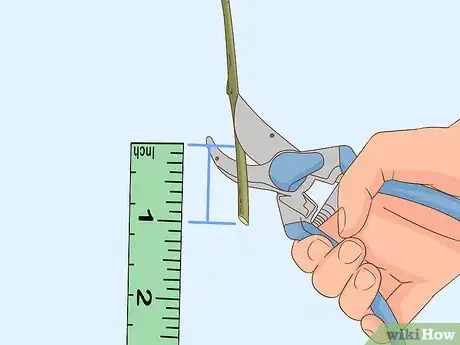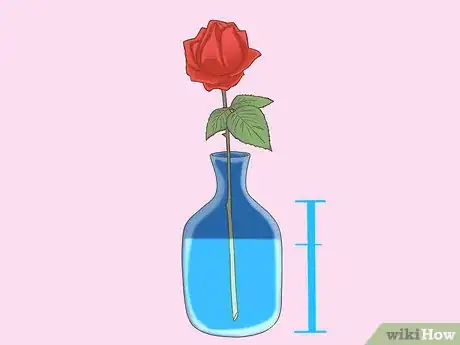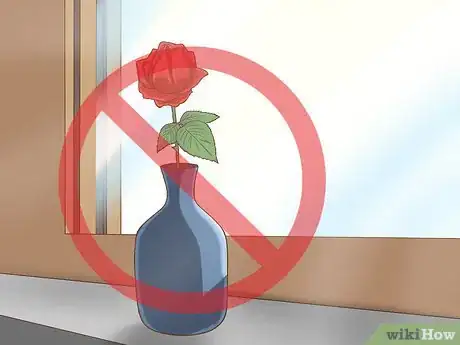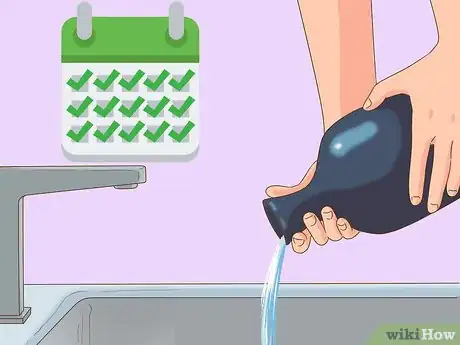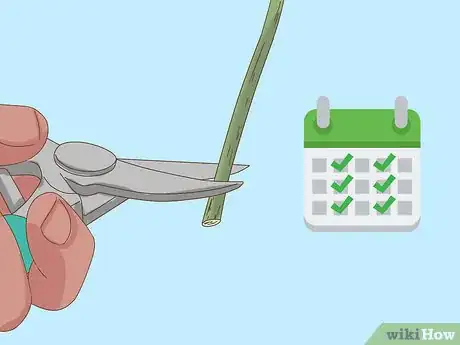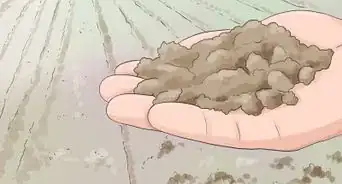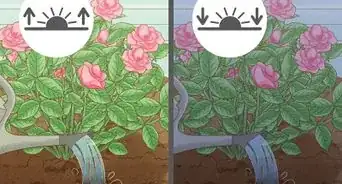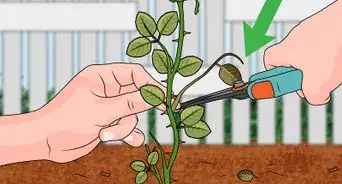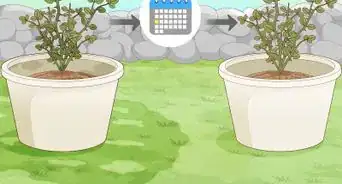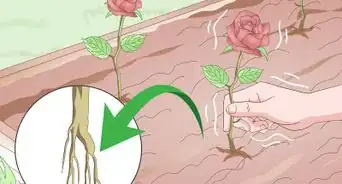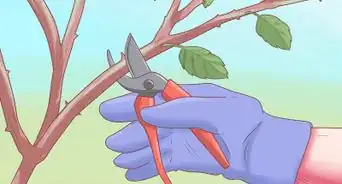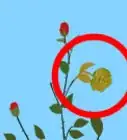This article was co-authored by Pilar Zuniga. Pilar Zuniga is a Floral Designer and the Owner of Gorgeous and Green, a floral design studio and Certified Green Business based in Oakland, California. Pilar has over ten years of experience in floral design. With a focus on being earth-friendly and supporting local growers, Gorgeous and Green has been featured in Energy Upgrade California, Molly My, Apartment Therapy, 100 Layer Cake, Design Sponge, and Trendy Bride. Her studio provides floral arrangements and gift basket, event and wedding design, and she teaches workshops on flower design and sustainability in her industry. Pilar received a BA in Anthropology from the University of California, Berkeley in 2001.
wikiHow marks an article as reader-approved once it receives enough positive feedback. In this case, 91% of readers who voted found the article helpful, earning it our reader-approved status.
This article has been viewed 262,437 times.
Stop and smell the roses, then whip out a pair of pruning shears and bring the blooms home with you. To make your beautiful bouquet last longer, cut the stems at an angle so they can get enough water, trim the lower leaves, and place the roses in a clean vase filled with water. Feed them regularly and you'll be able to enjoy your roses for 1 to 2 weeks.
Steps
Trimming the Stems
-
1Choose pruners or scissors with sharp blades to cut the stem cleanly. You don’t want to crush the waterways in the stem. The sharper the blade of the pruners or garden scissors, the easier it will be to trim the stem without squeezing it too hard.[1]
- A pair of shears or scissors with a smaller head are best for reaching into thick bushes.
- As opposed to flat blades, curved blades tend to make the cleanest cuts.
- Some pairs of scissors and shears have a “cut and hold” feature that holds onto the stems when they’re cut so they don’t fall to the ground.
- Clean the blades often with rubbing alcohol or soap and water.
-
2Cut the roses in the early morning, before 10 a.m. Roses are most hydrated and have the highest respiration in the morning hours. Never cut the roses during the middle of the day. That’s when they’re driest and weakest.[2]
- If you can’t cut the flowers in the morning, late evening is the 2nd best time for cutting.
If the roses are from your own garden, water them the night before you cut them. This refreshes the flowers and helps them last longer once they’re cut.
Advertisement -
3Look for roses whose outer petals have just started to open. This means that the rose is in the late bud stage. The exterior petals should be unfurled but the entire flower shouldn’t be completely open.[3]
- The number of petals a rose variety has can affect which blooms you cut. For example, roses with more petals, like the Moonstone or St. Patrick types, can be cut at a more open stage. If you aren't sure which variety you have, ask your local nursery or look at a gardening book or website.[4]
-
4Trim the stems at a 45 degree angle, close to the base of the bush. Cutting the stems on an angle prevents them from sitting flat on the bottom of a vase, which would stop water from flowing up the stem. Longer stems allow you extra length at the end to trim off if you need to fit a vase, so cut them as low to the ground as you can.[5]
- Cut stems from the front of the bush. The stems in the back haven’t been exposed to as much sunlight, so they’re usually weaker.
-
5Set the stems in a bucket of cool water immediately after cutting them. This does not need to be your vase. Instead, use a bucket with a large enough opening for you to work inside, in case you need to.
- The water level in the bucket should not be so high that it gets the flowers wet. Only the stems should be wet.
- You can buy buckets specifically for flowers at a garden store, nursery, or online retailer.
- If you've used the bucket before, make sure you thoroughly clean and sanitize it with soap and water before placing the roses inside.
Displaying Your Cut Roses
-
1Wash a vase thoroughly with soap and warm water to sanitize it. This is different than the bucket you originally placed the roses in. A clean vase is essential to keep your roses fresh, since any bacteria left in the vase can kill the blooms. Use a bottle brush to get all the way down inside the vase.[6]
- Run your vase on a normal cycle in the dishwasher if it’s dishwasher-safe.
EXPERT TIPPilar Zuniga is a Floral Designer and the Owner of Gorgeous and Green, a floral design studio and Certified Green Business based in Oakland, California. Pilar has over ten years of experience in floral design. With a focus on being earth-friendly and supporting local growers, Gorgeous and Green has been featured in Energy Upgrade California, Molly My, Apartment Therapy, 100 Layer Cake, Design Sponge, and Trendy Bride. Her studio provides floral arrangements and gift basket, event and wedding design, and she teaches workshops on flower design and sustainability in her industry. Pilar received a BA in Anthropology from the University of California, Berkeley in 2001.Floral Designer & Owner, Gorgeous and Green
 Pilar Zuniga
Pilar Zuniga
Floral Designer & Owner, Gorgeous and GreenOur Expert Agrees: To keep your roses looking fresh longer, wash your vase and soap and water, then let it dry completely before you put your flowers in. Fill the vase with fresh water, and when the water starts to look murky after a few days, pour out most of the water and add fresh water. However, leave a little of the original water so you don't shock the flowers.
-
2Remove any leaves that sit below the water line. This prevents any bacteria that was on the leaves from contaminating the water. Use scissors to snip off the leaves as close to the stem as possible or pluck them off with your fingers.[7]
- Don't remove all of the upper leaves, though. Otherwise, the roses won't be able to pull water up the stem.
- If you notice any leaves drop into the water while you’re arranging the stems, fish them out immediately so they don’t dirty the water.
-
3Recut the stems another 1 inch (2.5 cm), keeping them underwater. This makes sure there are no air bubbles clogging the waterways in the stems. Do not pull them out of the water while you’re cutting them.[8]
- Cut the stems at a 45 degree angle, just like you did when you trimmed them from the bush.
- If you need to make the roses shorter to fit the vase, it's okay to cut the stems more than 1 inch (2.5 cm).
- You can wear a pair of gardening gloves to protect your hands from the thorns on the stems.
-
4Set the rose stems inside a vase filled 3/4 of the way with water. Lukewarm or cool water is best for roses. The more flowers you have in the vase, the bigger the vase and the more water you’ll need.[9]
- Don’t overcrowd the roses in a small vase. They’ll wilt faster because they won’t get enough water.
- If you want to extend the life of your cut roses, sprinkle plant food into the water. You can buy premade plant food at a garden store, or make your own at home.
Make Your Own Flower Food
Ingredients:
2 tablespoons (30 ml) of white vinegar
2 teaspoons (9.9 ml) of sugar
1⁄2 teaspoon (2.5 ml) of bleach
Combine all of the ingredients and pour the mixture into the water in the vase.
Caring for Cut Roses
-
1Keep the roses in a cool place, out of direct sunlight. Heat or too much sun will cause cut roses to wilt faster. Avoid placing them on a windowsill or in a room that’s not temperature-controlled like a sunroom.[10]
- Placing the roses in the refrigerator when you aren’t displaying them, like overnight, will help them last longer.
- Avoid putting roses near fruits or vegetables that are ripening. The produce emits ethylene gas, which ages cut flowers.
-
2Change the water everyday to prevent bacteria from growing. Dirty water will cause your roses to die much faster. If you’re unable to replace the water every day, do it was often as possible to keep your roses alive longer.[11]
- Don’t use softened water. It contains salt, which is bad for the roses.
- If the water turns cloudy, change it immediately.
- When you change the water, don't forget to put more plant food in the vase, too.
-
3Recut the rose stems every 2 to 3 days. Cut them on a 45 degree slant to prevent the waterways from clogging and encouraging more water flow. You don’t need to cut them much shorter. A simple 1⁄2 inch (1.3 cm) trim will do.
- Make sure your scissors or pruners are clean before you cut the stems.
- If you can't cut the stems underwater in the vase, pull them out to trim them. Just return them to the water immediately after cutting them so they don't dry out.
Community Q&A
-
QuestionWhere do I trim the plant after a rose has bloomed and died, so the rose bush will produce more flowers?
 Community AnswerCount down to where there are five leaves, and cut just above that group of leaves.
Community AnswerCount down to where there are five leaves, and cut just above that group of leaves. -
QuestionHow do I trim rose bushes?
 Community AnswerUse a good pair of pruning shears and long-handled loppers. The shears are for smaller branches, and the loppers are for thick canes. Make sure your tools are sharp so they make clean cuts rather than causing tears and rips in the stems.
Community AnswerUse a good pair of pruning shears and long-handled loppers. The shears are for smaller branches, and the loppers are for thick canes. Make sure your tools are sharp so they make clean cuts rather than causing tears and rips in the stems. -
QuestionWhere is the water line on a rose bush and what is it?
 Community AnswerThe water line is on your vase, not the rose bush. The water line is the line that the water makes on the side of the vase. Your rose should be trimmed of all leaves on the stem to just above the vase's water line.
Community AnswerThe water line is on your vase, not the rose bush. The water line is the line that the water makes on the side of the vase. Your rose should be trimmed of all leaves on the stem to just above the vase's water line.
Things You’ll Need
- Garden shears
- Bucket
- Vase
- Water
- Soap
- Bottle brush
- Plant food
References
- ↑ https://www.finegardening.com/article/tips-for-cutting-garden-roses-to-bring-them-in-the-house
- ↑ https://scvrs.homestead.com/PreserveRoses.html
- ↑ https://www.finegardening.com/article/tips-for-cutting-garden-roses-to-bring-them-in-the-house
- ↑ https://scvrs.homestead.com/PreserveRoses.html
- ↑ https://www.rose.org/single-post/2018/04/12/Conditioning-and-Arranging-Cut-Roses
- ↑ https://scvrs.homestead.com/PreserveRoses.html
- ↑ https://scvrs.homestead.com/PreserveRoses.html
- ↑ https://www.finegardening.com/article/tips-for-cutting-garden-roses-to-bring-them-in-the-house
- ↑ https://www.apartmenttherapy.com/how-to-treat-flowers-so-they-l-108255
About This Article
To cut roses, wait until the early morning so the roses are hydrated, which will help them last longer after they're cut. Also, cut roses whose outer petals have just started to open so they continue to bloom after you cut them. When you're ready, use sharp pruners or scissors to cut the roses at a 45-degree angle, down near the base of the bush. Then, right after you cut them, put the stems in a bucket of cool water. To learn how to display cut roses, scroll down!
